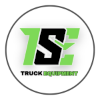When it comes to accounting, understanding the classification of assets like trucks is essential for accurate financial reporting and compliance. This question often arises: “Are trucks considered equipment in accounting?” In this blog post, we’ll delve into the nuances of asset classification, focusing on the accounting treatment of trucks.
Understanding Asset Classification
In accounting, assets are broadly classified into current and non-current (or long-term) assets. Current assets are those expected to be converted into cash within a year, such as inventory or accounts receivable. Non-current assets, also known as fixed assets or long-term assets, are used in business operations for longer than a year and are not intended for sale. Examples include buildings, machinery, and equipment.
Trucks as Fixed Assets
Trucks, due to their role and longevity in business operations, are typically classified as fixed assets. They are capital assets used in the daily operations of a business, whether for transporting goods, equipment, or employees. This classification is crucial for several reasons:
- Depreciation: Trucks, like other fixed assets, depreciate over time. Depreciation is the process of allocating the cost of the asset over its useful life. Accounting for depreciation is essential for accurately reflecting the value of the asset on the balance sheet and for tax purposes.
- Balance Sheet Representation: On the balance sheet, trucks are listed under the “Property, Plant, and Equipment” (PPE) category. This classification helps in understanding the company’s investment in long-term assets and its financial health.
- Expense Management: The costs associated with acquiring trucks are capitalized, meaning they are recorded as an asset on the balance sheet rather than an expense on the income statement. Over time, these costs are expensed through depreciation.
Accounting for Truck-Related Expenses
While the truck itself is a capital asset, expenses related to its operation and maintenance are considered operating expenses. These include costs such as fuel, repairs, insurance, and registration. Properly categorizing these expenses is crucial for accurate financial reporting and budgeting.
Tax Implications
The classification of trucks as equipment or fixed assets also has tax implications. Depreciation expenses can be deducted from taxable income, providing tax benefits to the business. It’s important to consult with a tax professional to understand the specific tax rules and benefits related to truck depreciation.
Conclusion
In summary, trucks are considered equipment in accounting and are classified as fixed assets. This classification impacts how they are depreciated, represented on the balance sheet, and accounted for in financial statements. Properly managing and recording truck-related expenses is crucial for maintaining accurate financial records and optimizing tax benefits.
For businesses involved in commercial trucking or those that rely heavily on truck usage, understanding these accounting principles is essential. At Sustainable Truck Equipment, we specialize in providing commercial truck solutions that meet your operational needs. Contact us today to learn more about how we can support your business.
Disclaimer: We are not an accounting firm and NO information provided here should be considered accurate or conclusive. This is solely information for you to read. Any decisions on how you handle accounting should be directed towards your accountant to verify what information is accurate and applicable to your scenario and jurisdiction. Sustainable Truck Equipment waives all liabilities caused by information received in this article.


